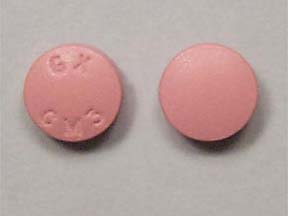
Malarone Coupons & Savings Card – Discount Prices from $15.70
Brand for: Atovaquone-proguanil
My prescription
Edit
250-100MG, Atovaquone-proguanil (30 Tablets)
Select pharmacy

CVS
$42.64
COUPON PRICE
Walgreens
$15.70
COUPON PRICE
Walmart
$58.85
COUPON PRICE
Albertsons
$61.40
COUPON PRICEMalarone savings card
Show this card to your pharmacist
Walgreens
$15.70
BIN
ID
PCN
GRP
015995
LHKPY260774
GDC
DR33
Powered by
Related antimalarials prescriptions
More prescriptions for malaria
Related antimalarials prescriptions
More prescriptions for malaria
Price history for Malarone (brand) & Atovaquone-proguanil (generic)
30 Tablets, 250-100MG
Average retail price for Malarone
Average retail price for Atovaquone-proguanil
Average SaveHealth price for Atovaquone-proguanil
Our price history data is based on aggregated prescription data collected from participating pharmacies in America. Our prescription data updates daily to reflect the latest price changes. If you notice a missing data point, it means there wasn't sufficient data available to generate a monetary value for that date.
Over the last 12 months, the average discount price of Malarone is $60.73 using the SaveHealth savings card. That's an average savings of 83.74% on Malarone with our discount card.
*Retail prices are based on pharmacy claims data, and may not be accurate when we don't have enough claims.
Malarone (Atovaquone-proguanil) dosage forms
Dosage Quantity Price from Per unit 62.5-25MG 30 Tablets $26.42 $0.88 62.5-25MG 100 Tablets $53.38 $0.53 250-100MG 30 Tablets $42.64 $1.42 250-100MG 1 Tablet $4.69 $4.69 250-100MG 4 Tablets $11.27 $2.82 250-100MG 5 Tablets $13.46 $2.69 250-100MG 7 Tablets $17.85 $2.55 250-100MG 10 Tablets $24.43 $2.44 250-100MG 11 Tablets $26.38 $2.40 250-100MG 12 Tablets $27.96 $2.33
| Dosage | Quantity | Price from | Per unit |
|---|---|---|---|
| 62.5-25MG | 30 Tablets | $26.42 | $0.88 |
| 62.5-25MG | 100 Tablets | $53.38 | $0.53 |
| 250-100MG | 30 Tablets | $42.64 | $1.42 |
| 250-100MG | 1 Tablet | $4.69 | $4.69 |
| 250-100MG | 4 Tablets | $11.27 | $2.82 |
| 250-100MG | 5 Tablets | $13.46 | $2.69 |
| 250-100MG | 7 Tablets | $17.85 | $2.55 |
| 250-100MG | 10 Tablets | $24.43 | $2.44 |
| 250-100MG | 11 Tablets | $26.38 | $2.40 |
| 250-100MG | 12 Tablets | $27.96 | $2.33 |
| 250-100MG | 13 Tablets | $28.85 | $2.22 |
| 250-100MG | 14 Tablets | $29.66 | $2.12 |
| 250-100MG | 16 Tablets | $31.28 | $1.96 |
| 250-100MG | 20 Tablets | $34.52 | $1.73 |
| 250-100MG | 24 Tablets | $37.77 | $1.57 |
| 250-100MG | 100 Tablets | $107.42 | $1.07 |
| 250-100MG | 190 Tablets | $180.43 | $0.95 |
| 250-100MG | 280 Tablets | $253.44 | $0.91 |
| 250-100MG | 365 Tablets | $322.39 | $0.88 |
| 250-100MG | 375 Tablets | $330.50 | $0.88 |
What does Malarone do to your body?
Malarone is a medication that combines atovaquone and proguanil. It is used to prevent and treat malaria. In the body, Malarone works by interfering with the growth of parasites in the red blood cells. Atovaquone inhibits the parasite's mitochondrial electron transport, while proguanil's active metabolite, cycloguanil, inhibits dihydrofolate reductase, disrupting the parasite's ability to reproduce and survive. This dual action helps to effectively prevent and treat malaria infections.
Who should not take Malarone?
Malarone should not be taken by individuals who are allergic to atovaquone or proguanil, the active ingredients in the medication. It is also not recommended for people with severe kidney disease. Pregnant or breastfeeding women should consult their healthcare provider before taking Malarone. Additionally, it is not typically recommended for children weighing less than 5 kilograms. It is important for individuals to discuss their medical history and any other medications they are taking with their healthcare provider to ensure Malarone is safe for them.
What is the contraindication to Malarone?
Malarone is contraindicated in individuals with severe renal impairment, specifically those with a creatinine clearance of less than 30 mL/min. Additionally, it should not be used by individuals with known hypersensitivity to atovaquone, proguanil hydrochloride, or any component of the formulation.
Is Malarone the best for malaria?
Malarone is a commonly used medication for both the prevention and treatment of malaria, particularly in areas where the malaria parasite is resistant to other drugs. Its effectiveness can vary depending on the specific region and the resistance patterns of the malaria parasite there. It is important for individuals to consult with a healthcare provider to determine the most appropriate malaria prophylaxis or treatment based on their travel destination and personal health needs.
Is Malarone hard on the liver?
Malarone, which is a combination of atovaquone and proguanil, can potentially affect the liver. While it is generally well-tolerated, some individuals may experience elevated liver enzymes as a side effect. It is important for patients to inform their healthcare provider of any pre-existing liver conditions before starting Malarone. Regular monitoring of liver function may be recommended for those with liver concerns.
